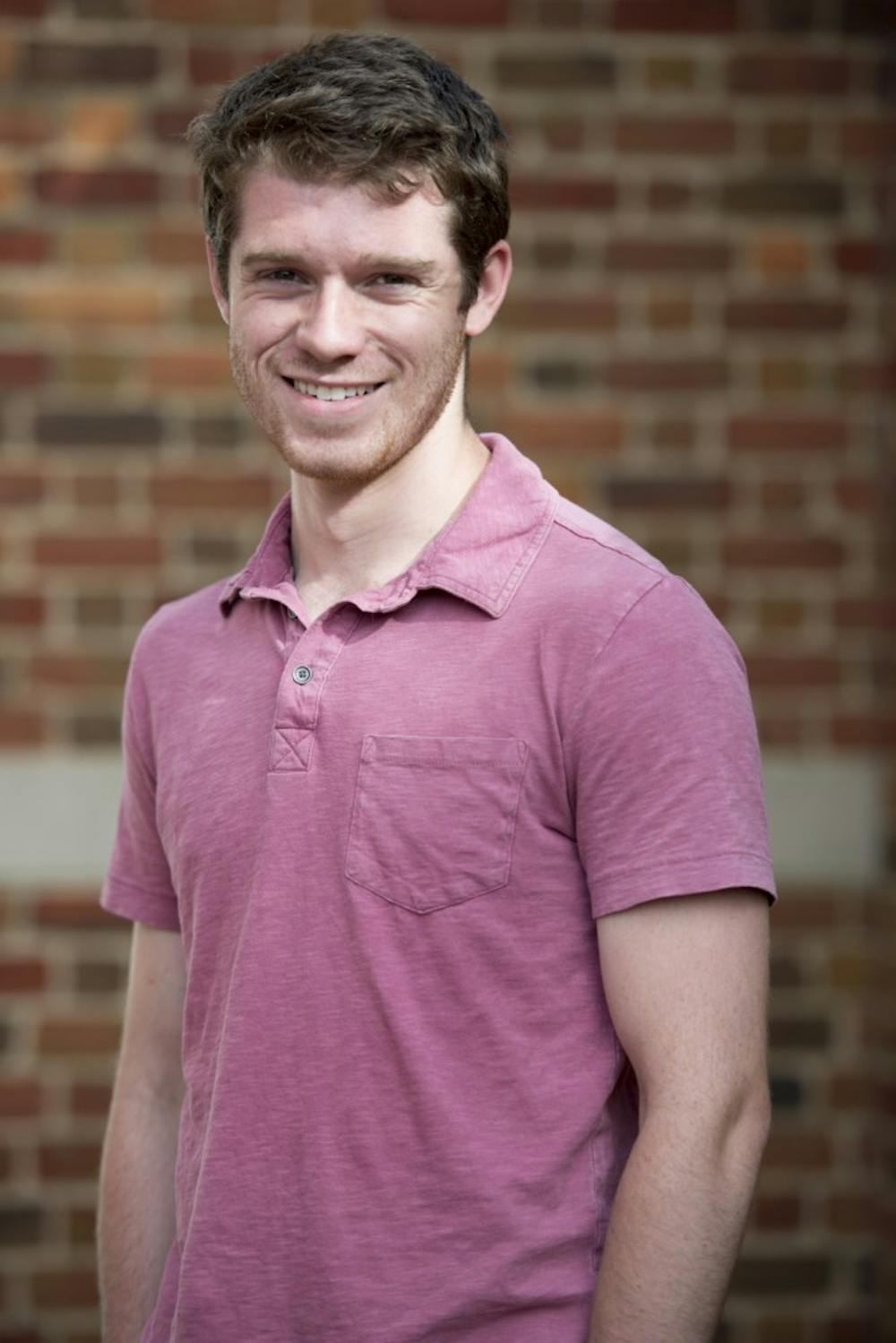With a whopping four percent alcohol content and only 96 percent sugar content, the pitcher of Bold Rock Hard Apple Cider tests the limits of my drinking abilities.
“It’s a little bitter,” I say.
“John, this is practically apple juice,” my friend Gina says back.
We’re at Boylan on a Thursday afternoon watching March Madness over burgers and this pitcher of hard — really hard, alright?— cider. I’m not too big into basketball, and I definitely have no affinity for beer or even the softest of hard ciders, so what am I doing drinking in a sports bar?
Well I’m on a quest, or more like a safari hunt. I’m looking for the quintessential college experience, trying to make some Polaroid memories so in a decade I can pick them out of my brain’s junk drawer and think, “Oh man, I remember that. College was rad.” My impending graduation/expiration date next year has me reevaluating how I spend my time and how I can spend it more memorably.
Beer and basketball felt like a good place to start. I don’t know exactly what kind of experiences I’m looking for, but this one felt college-y enough. I had fun, and now I can say I’ve done it. I’ve watched college basketball at a college bar while I was in college. I can say that for the rest of my life. At my job when I’m 40, I can vaguely say, “Yeah, I had some fun times in college,” and the interns will think I was a buck-wild undergrad back in my days. They’ll accept me into their inside jokes, water cooler chatter and maybe even their happy hour karaoke one Thursday night. I aspire to this greatness.
I know my quest has some flaws. This obligation to fully live “the college experience” can burden my mind. The pressure to enjoy the moment can pollute my thoughts — making it less enjoyable. There’s also no such thing as “the definitive college experience,” so ultimately that’s a fruitless pursuit.
I think my real goal — when I whittle my initial thoughts down to their true core — is to act with intention. Not just floating along on my daily stream of consciousness but purposefully charting each day’s course. I’m not so much looking for more fun but more satisfaction with my lifestyle. If that occasionally means drinking and/or putting myself out there more, well then by golly I will persevere. So yes, I’ll go to bars and parties and not complain about it, but was that pitcher really worth $16? I don’t think so, Mr. Boylan. I don’t think so.
I hate when people say, “These are the best four years of your life, make the most of them.” I think every stage of life has its perks, with the exception of middle school and maybe when you have to put up with your kids going through middle school. I’m not sure, I haven’t gotten to that chapter.
Sure, I know I need to act with more intention to make the most of this brief, unique phase of my life. But does that only apply to college? Shouldn’t you do that in high school? And young adulthood? And retirement?
When you tell me these four years are the best years of my entire lifespan, whenever I have a bad day or try to go out and have a lame night all I can think is, “Well, it only gets worse from here. This is it. The pinnacle of my life. It has arrived and here I am, in my room by myself.”
Actually, that “These are the best years of your life” comment can haunt my good times too. “You’ll never be able to do this again,” the wind whispers. Forget that junk. I’ll have fun this next year and a half, then I’ll graduate and still have fun.
So yes, I’m drinking more beer. No, you shouldn’t be alarmed. I’m just living with more purpose, squeezing the most out of the twilight of my undergrad years before I move on to equally enjoyable phases of life.







